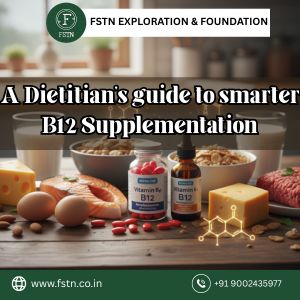World Lung Cancer Day is Celebrated on August 1st, an important reminder of the significance of early detection, awareness, and supportive care in the management of lung cancer. Lung cancer is most frequently diagnosed cancers globally and one of the main causes of deaths related to cancer. The significant risk factors are Passive smoking(main cause), air pollution exposure, occupational exposures (such as asbestos), and genetic susceptibility. They can have symptoms like persistent cough, chest discomfort, breathlessness, tiredness, and unintentional weight loss. Although treatment can involve surgery, chemotherapy, radiation, targeted therapy, or immunotherapy, nutritional care is crucial in enhancing the quality of life of the patient, immune response, and recovery.
Nutritional Management in Lung Cancer
A personalized nutrition program can assist patients in coping with side effects of treatment, maintaining weight, and increasing energy.
1. High-Protein Diet: To maintain muscle mass and tissue repair. Incorporate lean meats, eggs, pulses, tofu, and dairy. Cancer frequently induces cachexia (wasting of muscle). High-calorie, high-protein frequent small meals can:
- Avoid tiredness
- Maintain lean body mass
- Enhance daily activity and mood
3. Antioxidant-Dense Foods: Brightly colored fruits and vegetables (such as berries, spinach, carrots) to diminish oxidative stress. It help fix cells and minimize side effects.
4. Hydration: Drink enough fluid to lessen fatigue and cope with chemotherapy side effects.
5. Immune Support: Add zinc (pumpkin seeds, legumes), selenium (Brazil nuts), and omega-3s (flaxseeds, fatty fish).
Foods to be Avoided :
Avoid gas-producing foods (like beans, cabbage, carbonated drinks, and fried foods) as they can cause bloating, which may put extra pressure on the diaphragm and make breathing more difficult for individuals with lung issues or lung cancer.
Diet won't Heal, but it can:
- Boost immunity to overcome infection during treatment Enhance the efficacy of treatment
- Minimize treatment side effects
- Facilitate quicker recovery
- Enhance quality of life and possibly extend survival
Today on Lung Cancer Day, let us raise awareness and promote preventive steps such as smoking cessation, periodic health checks, and control of air quality. Nutrition, although not a cure, forms the foundation of lung cancer management — enabling patients to battle with fortitude, endurance, and hope. Before Staring any diet consult a Certified Oncology Nutritionist or Dietician.



